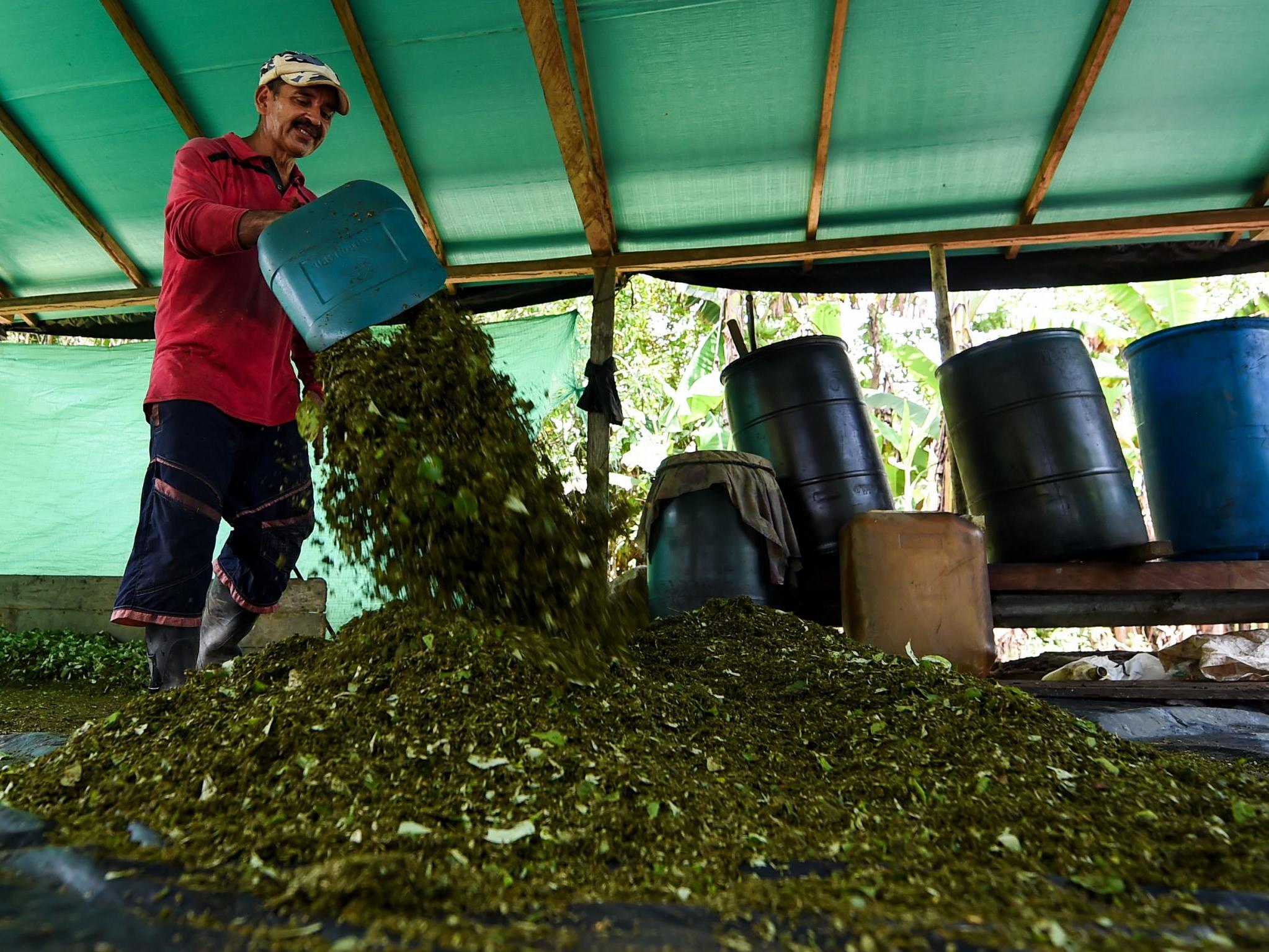US vows to help world's largest cocaine producer curb 'deeply concerning' rise in cultivation
World's largest consumer of drug to support Colombian government's efforts to cut record production of coca leaf

Your support helps us to tell the story
From reproductive rights to climate change to Big Tech, The Independent is on the ground when the story is developing. Whether it's investigating the financials of Elon Musk's pro-Trump PAC or producing our latest documentary, 'The A Word', which shines a light on the American women fighting for reproductive rights, we know how important it is to parse out the facts from the messaging.
At such a critical moment in US history, we need reporters on the ground. Your donation allows us to keep sending journalists to speak to both sides of the story.
The Independent is trusted by Americans across the entire political spectrum. And unlike many other quality news outlets, we choose not to lock Americans out of our reporting and analysis with paywalls. We believe quality journalism should be available to everyone, paid for by those who can afford it.
Your support makes all the difference.The US government has said it is “deeply concerned” about Colombia’s increased cultivation of coca leaf, the raw material for cocaine.
The South American country has long been the world’s top producer of cocaine, but last year its potential output was the highest since records began, according to United Nations figures. Meanwhile, the US is the world’s top consumer of cocaine.
US secretary of state Mike Pompeo met with Colombian president Ivan Duque to discuss plans to slash supply of the plant in half by 2023.
“The United States remains deeply concerned about the surge in coca cultivation and cocaine production in Colombia since 2013,” Mr Pompeo told journalists after the meeting.
The total area of the Colombia used for coca cultivation had reached 171,000 hectares (422,550 acres) by the end of 2017, enough to produce 1,379 tonnes of cocaine.
Increased productivity and growers’ eagerness to expand their output in the hope of getting more aid to switch to legal crops, have been blamed for the rise.
The Andean nation’s government wants to eradicate 100,000 hectares of coca crops in 2019. Mr Duque said last month that eradication last year would total more than 80,000 hectares of illicit crops.
The US commitment to helping Colombia dismantle organised crime groups would be “vital”, Mr Duque said.
He added Colombia could resume fumigation of crops with the herbicide glyphosate, which it suspended in 2015 after the chemical linked to cancer. The strategy could be reinstated if it can be made to comply with judicial conditions, Mr Duque said.
Mr Pompeo and Mr Duque discussed American support for common goals such as “counternarcotics efforts, peace accord implementation, trade,” the US Department of State said.
They also talked about the crisis in Venezuela, where hyperinflation and food and medicine shortages have prompted more than 3 million people to flee over recentl years.
More than a million who now live in Colombia and Mr Pompeo commended the country for the support it had given.
The pair also discussed how to collaborate on aid with regional and international bodies.
“All countries that defend democracy, all countries that share the value of democracy should unite to reject the Venezuelan dictatorship,” Mr Duque said.
The US has placed sanctions on Venezuela’s debt and on some officials in socialist president Nicolas Maduro’s government, which it accuses of corruption and human rights violations.
Mr Maduro blames Venezuela’s economic problems on US sanctions and an “economic war” led by political adversaries.
Additional reporting by agencies
Join our commenting forum
Join thought-provoking conversations, follow other Independent readers and see their replies
Comments